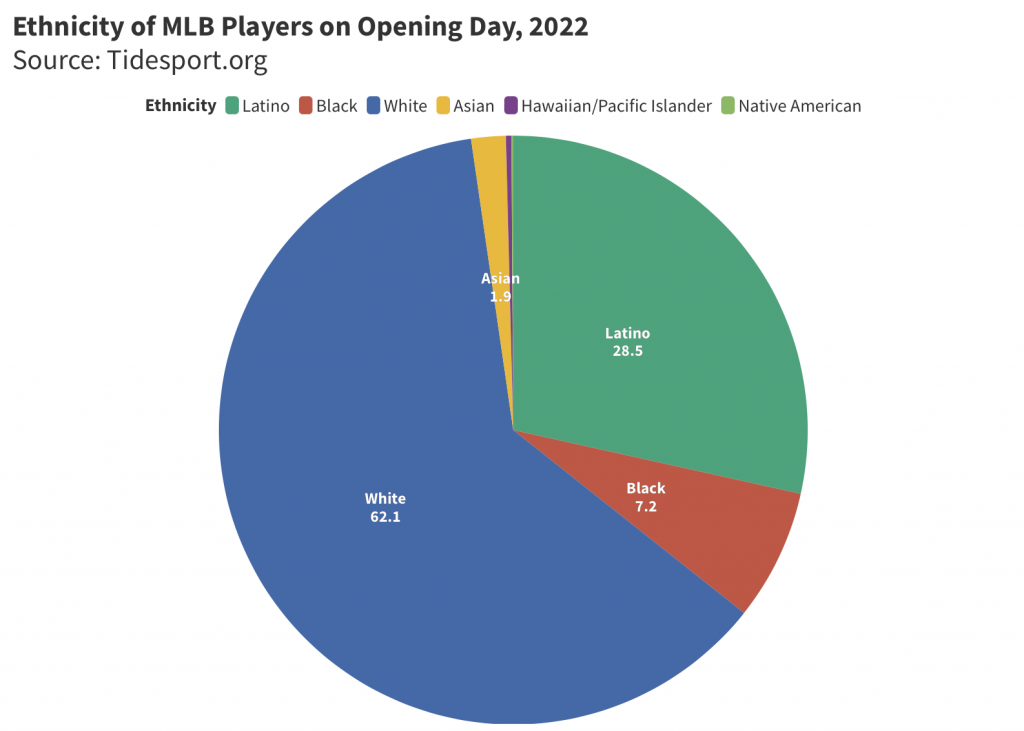MLBPA certified agent Felix Olivo Jr. and recent college graduate Bryce Stein share how to make a name for yourself in sports quickly.

You’re scrolling through social media and see your favorite athlete hired a new agent. Naturally, your first reaction is, “Oh no, this is trouble.”
After all, these mysterious figures are notorious for being some of the most powerful and despised names in the sports universe. If a player demands a trade, you blame the agent for putting thoughts in their head. If a player leaves a team in free agency, you blame the agent for being greedy. No matter the outcome, sports fans hardly ever side with the agent.
You hear their names on TV all the time: Scott Boras, Rich Paul, Drew Rosenhaus. Even well-known rapper Jay-Z is in the game after founding his own agency, Roc Nation, which represents both music artists and athletes.
But what exactly do their jobs entail? And how do you even get there in the first place? Also, why would I want this career? Well, maybe you’re a sports nut. According to the site Statista, it’s a $500 billion industry and ZipRecruiter says agents can make anywhere from $54,000 to $110,000 yearly.
Like any occupation, not all pathways to the top are linear. However, a quick rise is achievable, as evidenced by the journey of Felix Olivo, Jr.
Olivo dreamed of being an agent since he was a kid. His father has worked as one for 20 years, making his start at an amateur baseball academy in Venezuela. Olivo’s father soon got involved with the professional industry and began working at an agency. Eventually he built his own business, OL Baseball Group, which helps market professional baseball players based in Miami, Florida.
When he was 24, Olivo received his general certification from the Major League Baseball Players Association. Today, he serves as the Vice President of OL Baseball Group, helping his father represent 20 players in the Major Leagues, Minor Leagues, and Korean Baseball. Notable clients include Philadelphia Phillies relief pitcher José Alvarado, José Ruiz of the Chicago White Sox, and 15-year pro Wilmer Font, who now plays in the Korean Baseball Organization.
However, it’s not just about growing up in the trade. Bryce Stein, 22, studied sports business at Arizona State University before graduating earlier this year. Unsure of his path at first, Stein got involved as a manager for his school’s baseball team, where he helped with scouting and other responsibilities. After connecting with the team on a personal level, he realized that player representation could be a way to fulfill his passion for the game and helping people.
After graduation, Stein immediately began researching different agencies, sending them information about his background and experience with baseball as well as examples of his work scouting and other written reports. Stein got the attention of Paul Kinzer, the president of Premier Talent Sports and Entertainment. He soon landed his first job as a Major League Baseball agent and draft advisor.
If all this sounds interesting, know that just like Olivo and Stein, you too can begin working at a sports agency using these tips below.
Find the Right Courses
Like many professions, having a degree is very important to get your start in a highly competitive sports industry. You’ll need to study sports management and business administration for starters. Many agents also have a law degree—we’ll dive into that a bit later.
By taking courses in these majors, you will gain the knowledge, skills, and the network needed to excel in the business side of sports. Usually, these require an internship to graduate. You may also want to consider pursuing a master’s degree or take another language to separate yourself from your competitors.
Get Certified
Once you have your degree, the next stop to representing the top athletes in the world is becoming certified.
Each of the major sports leagues has their own unique, yet similar process. Olivo explained that anyone who wants to get into the business needs to understand the basic vocabulary and rules of the game.
“Options, being designated for assignment. All that kind of stuff,” Olivo said, talking about the unique vernacular of player trades, moving up and down the rungs of MLB to the minors or back up to the majors, and the internal conversations that all leagues have for communicating these actions. “If you get familiar with it, you’ll be fine.”
Once you have the lingo down, to begin the certification process, you must go to the Major League Baseball Players Association (MLBPA) website or the site of whichever sport you want to break into. The next steps are as follows:
- Read and understand all important documents, including regulations for agents, the updated collective bargaining agreement, and the league rulebook.
- Pay a non-refundable application fee. For MLB, it’s $2,000. For the National Football League, it’s $2,500.
- Fill out and submit the application, answering all questions.
- Provide permission for the players association to conduct a background investigation.
- Pass the written examination. These only take place once per year. This test is open book and will cover the league’s basic agreement, major league rules, joint drug agreement and agent regulations. Be warned: The manuals are very long.
The final step to officially become certified is to recruit and represent at least one player on a major league roster. For MLB, this means that player must be on a team’s 40-man roster.
To be clear, you do not need to be certified to get started as an agent. Stein is currently advising four collegiate athletes through the MLB draft process without MLBPA certification.
“I don’t necessarily have to be certified since I don’t have any professional players,” Stein said, adding that it’s not a pressing concern for him right now but is on his to-do list. He has to be certified by the next draft cycle so he can retain his clients if they find success professionally.
The Actual Job
Think this gig is all about bro-ing down with players and going for rides in their Lambos? Think again. Be ready to negotiate heavy-duty arbitration cases.
To put it as simply as possible, arbitration is when players and clubs negotiate over salaries, primarily based on comparable players who have signed contracts in recent seasons. For most leagues, this process occurs when a player enters restricted free agency.
Now, this is a pond you cannot swim in until you are actually certified. However, you will need to prepare for what follows.
“It’s a crazy, difficult, disgusting process,” Olivo said.
In baseball, players cannot enter free agency until they accrue six years of service time. However, after three years, players become eligible for arbitration, which gives them a chance to argue for a higher salary than what the team offers. A player’s salary can also be reduced by up to 20% in this process. If both sides cannot agree on a number before a set deadline, the process goes to a hearing, where the salary is decided by a third party.
Here, both sides plead their case. This is where your law degree comes into play.
Is your head already spinning? You’re about to get dizzier. If you want to make money for your client and yourself, Olivo said that mastering the job has everything to do with data as well as intangibles.
You need to be up to date on the latest trends in the sport. Almost every organization in modern sports employs an analytics department to evaluate the performance and value of their players. These are not the “home runs” or “total yards” you find in an average box score. No, we are talking wRC+ (weighted runs created), TS% (true shooting percentage), and all of those other advanced stats that make you dizzy. How these numbers compare to that of other players who recently negotiated contracts will either help or hurt your case.
“It’s part of the business. You say, ‘my client costs $2.5 million,’ and the team says ‘your client costs $1.85 million.’ You have to justify the proper value,” Olivo said. He warns that teams will do everything they can to lower the value of your client, whether it’s bringing up a missed practice, a fight with a teammate or a coach, or any cherry-picked stat to deem them less valuable. “Your players can get frustrated. They can be hurt psychologically.”
The job looks a bit different for those just getting their feet wet in the industry. For Stein, he frequently goes to meetings with other agents and attends various games and scrimmages every weekend to scout and meet players. Most of the job is networking early on, so Stein leans on other side hustles such as recruiting until he can start making commission from negotiating contracts like Olivo does.
“Shake any possible hand you can”
Getting your foot in the door can be as simple as volunteering to help out your school team. Whether it is with the grounds crew or the coaching staff, Stein said those connections can lead to highly valuable knowledge.
“Just reach out to people,” Stein said. “I know people are really willing to talk and give back in the sports community.”
Maintaining those connections are just as important once you are established as it is when you are just starting out. Your responsibility as an agent is to be available for your clients 24/7, no matter what help they need. In Olivo’s case, this could mean traveling from Miami to Seattle to New York to visit different clients all in the same week. Not every client will be in big cities either. Most minor league teams are based in small towns, and you must find a way there.
“The idea is to solidify the relationship with them and make a difference,” Olivo said. “Not every player is going to be a superstar. Sometimes they don’t get enough attention from their agencies. You have to take care of those players.”
When you show up at a player’s game take them out for a meal after, the players notice, teammates notice, and other agencies notice. Olivo specified that your reputation can land you referrals down the road. These relationships must be strong, otherwise your client might drop you.
Gaining a competitive edge
Not only are you competing with other prospective agents when you start out, but also other agencies when you pursue clients. There are several ways you stand out amongst the rest of the competition, whether you are trying to land that first job at an agency or sign a new client.
As mentioned before, obtaining your master’s degree and law degree separates you from others. It can boost your credibility and help save the athlete the expense of hiring an outside attorney to examine the terms of the contract.
Another way to open yourself up to clients is to speak more than one language. Olivo is fluent in English, Spanish, and Italian, which has helped him eliminate communication barriers in a very diverse sport. According to data from ESPN, Latinos represented 28.5% of players on Opening Day rosters in 2022.

“When you speak more than one language, it will help you in this industry,” Olivo said. “If you only speak English, you’re limiting yourself. Not all Latin players have very good English and it can be very frustrating for them. In my case, being bilingual, I’ll have the Latin market. Something that will make the players feel more comfortable.”
“Never Stop Dreaming”
The business side of sports can appear impossible to break into at times, but it is achievable if you follow these guidelines.
“I’m not gonna be able to get the biggest fish in the pond right away,” Stein said. “Unless you put yourself out there, you never know how you are going to connect with a certain individual.”
“Never stop dreaming,” Olivo said. While he admits that the business can be daunting, it is important to remember that another person puts their confidence in you to help handle their life. “You always have to do your best and fight for the interest of your player and yourself.”
